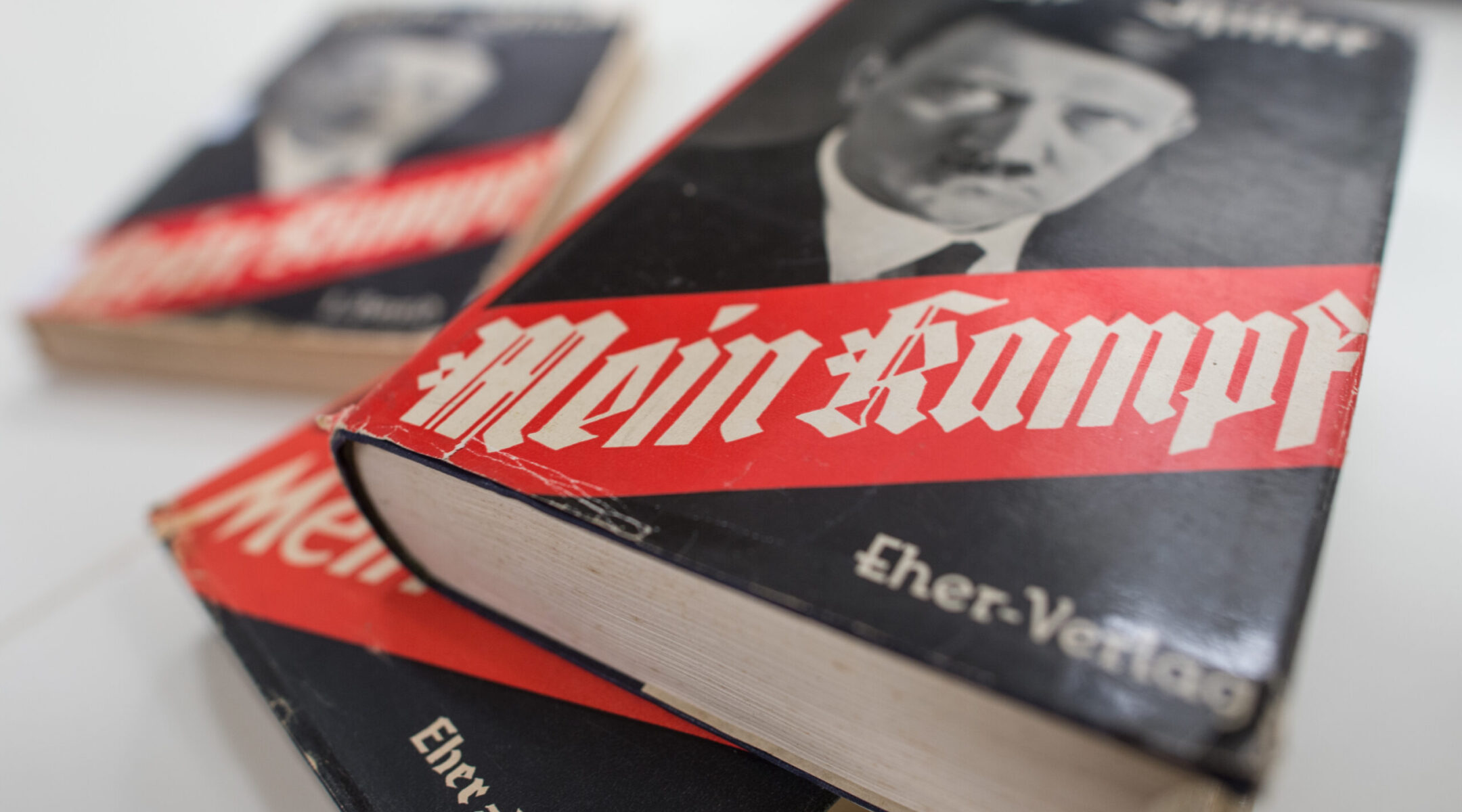(JTA) – A display of Nazi memorabilia at the home of Republican megadonor Harlan Crow has come under renewed scrutiny following revelations that Crow lavished Clarence Thomas with expensive, unreported gifts.
Crow has for more than two decades treated Thomas, the conservative Supreme Court justice, to complimentary vacations and private jet and yacht rides, according to a recent investigation by the news organization ProPublica. Thomas subsequently acknowledged that he failed to disclose those excursions, which analysts say is a likely violation of federal laws. Democratic senators on the Senate Judiciary Committee announced plans to hold hearings on the issue, while Democratic Rep. Alexandria Ocasio-Cortez has even suggested Thomas should be impeached.
Crow is a Dallas-based real estate mogul who founded the conservative activist group Club For Growth. The news about his deep ties to Thomas has drawn renewed attention to his home’s extensive collection of historical artifacts, including a signed edition of Hitler’s antisemitic manifesto “Mein Kampf,” two of Hitler’s own paintings and a set of linens emblazoned with the Nazi insignia. Crow also maintains a garden full of statues of Communist leaders he calls the “Garden of Evil.” His other historical artifacts reportedly include documents signed by George Washington and Dwight Eisenhower’s military helmet.
Crow’s collection of Nazi memorabilia has generated controversy in the past, including in 2015 when then-presidential candidate Marco Rubio held a fundraiser at his house on the eve of Yom Kippur. At the time, the National Jewish Democratic Council and the Democratic National Committee heavily criticized Rubio’s decision to hold the fundraiser at Crow’s house. This go-around, the Jewish Democratic Council of America said it was “deeply disturbing” that Thomas’ “donor friend proudly collects Nazi memorabilia.”
The Nazi artifact market is contentious, with laws prohibiting it in some European countries and criticism of auction houses that sell the items fierce in places where it is permitted. Much of the criticism centers on the idea that the people purchasing the artifacts are sympathetic to the Nazis, although one frequent purveyor of Nazi artifacts in the United States told the Jewish Telegraphic Agency last year that his typical buyers “are NOT neo-Nazis, who are too poor and too stupid to appreciate any kind of historic material.”
In 2019, a Lebanese-French buyer of Nazi paraphernalia revealed that he was gathering the items to keep them out of the hands of neo-Nazis and turned them over to Jewish groups instead; others have indicated interest in purchasing the items to destroy them.
Crow keeps them on display, according to news stories and accounts from visitors over the past decade. He has maintained that his collection of Nazi artifacts and other relics of dictatorial regimes reflects an interest in history. His mother, Margaret Crow, told local news outlets that she was a survivor of the S.S. Athenia, the first British ship to be sunk by Nazi Germany during World War II.
In the wake of the recent reporting on Crow, some conservatives have defended his collection. Conservative commentator Ben Shapiro, who is Jewish, suggested on his podcast that the collection may be a way “to remember the things that you hate.”
Current and former staffers at the conservative publication The Dispatch, which Crow funds, also defended his collection. “I know Harlan Crow and I’m proud to call him a friend,” tweeted the columnist Jonah Goldberg, who is Jewish. Crow’s “Garden of Evil,” Goldberg said, is “an attempt [to] commemorate the horrors of the 20th century in the spirit of ‘never again.’”
And New York Times columnist David French, a former senior editor of the Dispatch, tweeted, “The idea that he’s a Nazi sympathizer is utterly ludicrous. He abhors tyranny, from fascism to communism to everywhere in between.”
Others criticized the public display of the artifacts. NBC News reporter Ben Collins, who reports on the far right and said his grandfather fought for the United States in World War II, said his family had recently found war artifacts “including some Nazi stuff” in a basement. “He didn’t put it in a special little room to show guests because he didn’t find horrible things cute and fun,” Collins tweeted.
JTA has documented Jewish history in real-time for over a century. Keep our journalism strong by joining us in supporting independent, award-winning reporting.






